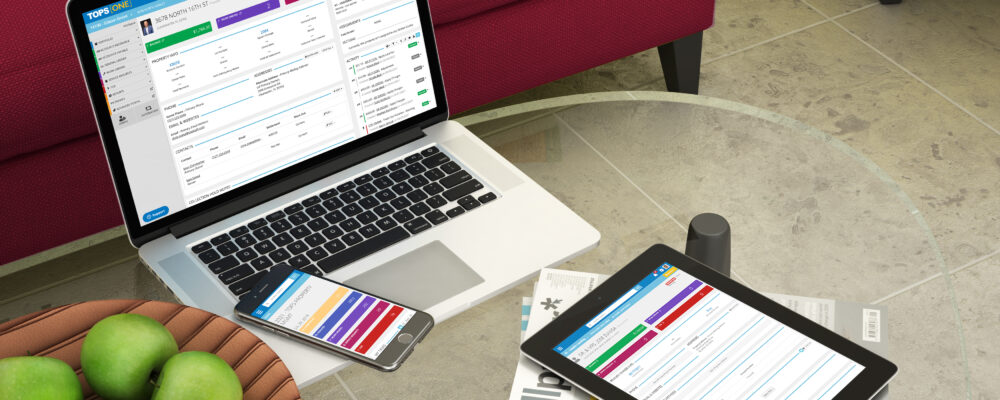So you’ve been notified that your management proposal has been accepted. Congratulations! You’ve gotten your first management contract – a goal you have been putting all of your efforts to accomplish! Now what?
This blog post is an excerpt of Jeff Hardy’s popular eBook on How to Start Your Own Community Association Management Company.
Before You Take Over Management
First, you will need to provide a management contract outlining the services.
We’ve developed a Free Sample Management Contract to get your started. Pay particular attention to the Schedule of Reimbursable Expenses attached to the contract. You want to review these charges (like postage and printing) to make sure they are reasonable in today’s dollars and for your area of the country.
Second, if you haven’t already, it’s time to purchase industry specific software (like Enumerate Central) to handle the accounting and property management. You must have the tools of the trade to handle this first community and then grow your business.
Third, in How to Create an Action Plan we talked about developing a start-up budget. Now is the time to review that budget and start doing the logistical steps to actually implement the plan. This will include things like: office space, phone lines, office furnishings, opening a bank account, and incorporation (You MUST incorporate your management company to protect yourself from personal liability.)
Also, be sure to arrange for insurance. You will need a Fidelity Bond because you are handling other people’s money. Also, you will need a general business liability policy. When you can afford it, I would suggest a Professional Liability policy (Errors & Omissions) to give you even better liability protection.
Usually with a new management contract you have 1 – 2 months before you actually begin. This will give you some time to accomplish the above so you are ready on the effective date.
Make Your First Community a FAN!
It is extremely important with the first community you manage that you do an extraordinary job of management.
You want to make this first community a strong ally because, if you do, they will become the best sales people for your management company. There is no stronger sales pitch for any product or service than a current customer who is fanatical about your company. They will want to see you succeed so you continue to be available to manage their community—so they will help you get other management contracts to keep you in business.
Follow these To Do’s and Guidelines to make sure those first few managed communities become fans of your company:
To Do’s
- Management Transition
You will need to contact the current management company to work out the details of the management transition. You probably need to contact them in writing, but only after you know the community officers have notified the old management company that they are changing management. Ask for copies of current contracts and the Account #’s for any utilities immediately. Also request a homeowner mailing list so you are ready to notify the homeowners about the change in management.You should also request a certain amount of the operating cash be handed over to you on the effective date so you have working cash. All the hard copy records, including financial statements, belong to the community, not the management company. You will want to find out how long after the effective date these records will be made available to you along with the final accounting and the cash balance. - Notify Homeowners
You will want to draft a letter letting the homeowners know you are taking over management. The letter should be very upbeat and positive and not disparage the old management company in any way. It should let the homeowners know where to send all future payments. - Notify Current Contractors
The community probably has an attorney, accountant, lawn and landscaper, etc. You need to find out who they are, then send them a letter introducing yourself and letting them know the effective date when you are taking over the community management. Let them know to start sending you invoices and copies of correspondence after this date. - Notify Utilities
if there are common meters for electric, water, gas, phone, cable, etc. you will need to get the account #’s from the current management company, then send change of address letters with the effective date. - Open Community Bank Accounts
You will need a commercial bank account for the community you will be managing. Because you need cash for deposit in order to open a bank account, you might have to wait on the community bank account until you start getting homeowner checks or you get the excess working cash check from the old management company. The community bank account normally indicates your relationship as the legal agent for the community, so a bank account name would be something like:- “ABC Management, Inc. Agent for XYZ Homeowners Association, Inc.”
- Order Checks
Order an initial supply of 100 – 200 business checks for the community bank account. Although the software you select will likely have its own check formats you will need to order, you will also need handwritten checks from time-to-time. You can get started paying the communities bills with these handwritten checks until you order the checks that work with your software.
Guidelines
- Be Responsive and Professional.
To offer professional services like community management, you have to be prepared and look and act the part. That means running a professional office, having professional manners in dealing with people and dressing like a professional. Show initiative by actively participating in meetings and making good, common sense suggestions about how to handle issues within the community. Quickly handle any issues assigned to you—NEVER PROCRASTINATE. Remember, they are unpaid volunteers running the equivalent of a small town government. You are the paid business manager that makes things happen. - Be Available.
Most board members work during the day; allow evening calls on your cell phone or at home. The management business is a 24/7 operation – recognize that and be prepared that you are on-call for emergencies that affect the community. - Attend Board Meetings.
Part of your responsibility is to be the business adviser to the community officers. You also need to be there to take down “Action Items” they wish you to handle and to report back to them on the status of previous “Action Items”. You should be preparing a written management report to distribute to the board members before each meeting, then reviewing it with the board at the meeting. Be sure to specify a limit to the number of board meetings you will attend during the year in your management contract, but with the first few communities you manage, be flexible about enforcing this limit. - Be Honest.
If you don’t know the answer to a question, tell them ‘I don’t know, but I will find out.’ It’s hard for anyone to know everything about legal issues, accounting, property maintenance, communications and rules enforcement—but you should consult professionals to find out. - Be Ethical.
This is more than honesty, it means being trustworthy and not taking advantage of your position. Never accept money or free services from contractors who work for your communities. Don’t do anything that you wouldn’t want your managed communities to know about. Your word should be your bond in business. When you promise something, you should honor that promise like it was your signature on a contract. All of this helps create a good reputation for your company. A good reputation is one of the most important ingredients to your company’s success—always protect it. If you operate this way, you’ll have contractors wanting to work for your company, as well as communities asking you to give them a management proposal.
Remember, make that first community your ally—do a good job, build good references and they will help you get the next community for management and others after that. Good luck!







